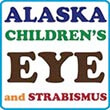
Home » Patient Resources » Billing FAQs
Before calling our office to discuss your bill, please take a few minutes to look through the following information. Many of the questions and issues we hear about on a daily basis are addressed below. If you still have questions, please call our billing department.
Please look at your statement from us to see the reason that your insurance company did not pay the bill. The most common reasons are that the cost was applied to your deductible or that your insurance policy considers the exam, or part of the exam, to be a non-covered service (as sometimes happens with refractions).
Questions about either of those reasons should be directed to your insurance company. We cannot call your insurance company for you and we do not know the details of your specific policy.
If your bill shows a copay is due, that means that we did not collect the correct (or current) copay at the time of your child’s visit.
Sometimes you may receive a bill because a Coordination of Benefits (COB) request was sent to you by your insurance company. If your bill shows such a reason, it means your insurance company told us that they have requested information from you, the primary insured person.
To respond to a COB request from your insurance, you can simply call the telephone number on the back of your insurance card.
If you have responded to the COB, please let us know so that we can put your account on hold until your insurance company reprocesses your child’s visit.
If you do not respond to your insurance company’s COB request in a timely manner, they will deny the visit and tell us to bill you directly.
If your insurance company representative told you that we billed the wrong insurance, please check your statement to see which plan we billed. Please remember that our office only participates in health insurance plans. We do not participate in vision plans (e.g., VSP, EyeMed, Davis Vision, Blue Vision, Aetna Vision, etc.).
We cannot bill your vision plan since we are not in their network. Once you pay your bill, we can provide you with a detailed receipt that you can submit to your vision plan to see if they will reimburse you directly.
What they are really saying is that in order for the visit to be covered by the specific insurance plan you have, the doctor would have had to code the visit (i.e., diagnosis) in a different way. Although that reason gets you off the phone with them (and blames the doctors office), it is very misleading. Our doctors code office visits according to insurance company rules and guidelines. We are not allowed to change the coding solely to have your child’s visit covered.
Sometimes they may say that your child’s visit was coded as a routine exam and is thus not covered. This is also a misleading statement. We do not code visits as “routine” versus “medical”. All exams are coded as office visits. Your insurance company is instead looking at the diagnoses codes from the visit and determining, according to their own reasoning, if these are “medical” conditions. If they decide that the diagnosis does not meet their definition of “medical”, their systems mark the exam as routine.
Some examples of diagnoses that we have seen insurance companies mark as routine include nearsightedness, farsightedness, astigmatism, and blurry vision.
Again, we cannot change or add medical diagnoses after the fact to get your insurance company to pay the claim. If you think we made a genuine mistake and missed a diagnosis that was discussed during the visit, please let us know.
Please look at your bill to see what procedure the charge(s) are coming from. Copays are almost always applied against the office exam portion (or procedure) of your visit. If the bill states that an amount owed is a copay, it may be because we did not collect the correct (or current) copay at the time of your child’s visit.
If the bill shows that an amount owed is from a different procedure, such as from a refraction or an ocular motility exam, look a bit further down to see the reason for the charge(s). The types of charges most often billed to patients include co-insurances, deductibles, and non-covered services (i.e., procedures or types of visits that are excluded from your specific health insurance policy).
Each insurance company may have different rules about how they cover annual or preventative exams. In fact, different policies provided by the same insurance company often have different rules about what they and how they cover eye exams.
If your child is seen and has a diagnosis that is not consistent with your insurance company’s annual or preventative exam rules, they may not pay for the visit. If that happens, you will receive a bill from us.
Please be aware that we do not know the specifics of your health insurance policy. Thus, we do not know beforehand if, or how, your insurance will categorize or cover your child’s eye exam.
"Dr. Winkle and staff provide the most professional, friendly, and best customer service. Our 5 yr old daughter had strabismus surgery with Dr. Winkle 2 weeks ago, and I couldn’t be any more happier with the results and how quickly she’s recovered. Dr. Winkle and his team provided very detailed and important information during surgery, pre-op, and post-op. They take their time to explain and answer any questions one has. Their level of professionalism and care for our child was beyond anything. We are extremely grateful and thankful for what they did to better our little one’s vision."
"What a great place to bring children. First-class facility and great staff!"
"These guys are amazing with children! I would really recommend coming here if your kiddos are experiencing difficulties with their vision."

